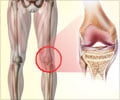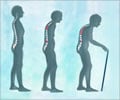Physical Symptoms of Menopause
In most women, periods come to an end over time but they are spaced more closely or more widely. For others, the flow stops suddenly. But most women experience the following physical symptoms of menopause:
- Hot flashes: Every 3 out of 4 women experience hot flashes during their menopause. There is a feeling of mild to intense heat spreading through the upper body and face as the flush appears, followed by a chilled feeling as the flash subsides. Heartbeat increases and one tends to sweat especially on the upper body. Hot flashes occur because of the decreased or sudden stop in the supply of estrogen. An assessment of menopausal symptoms using modified Menopause Rating System among Malaysian women showed that although prevalence of the symptoms in the study corresponds to other studies on Asian women, the prevalence of hot flashes and sweating was lower in Asian women as compared to those in Caucasian women.
- Night sweats: Just as hot flashes occur during daytime, night sweats with the same symptoms as hot flashes occur during the nights. It is also known as ‘nocturnal hyperhydrosis'.
- Sleep disorders: Insomnia, waking up several time or at nights, tossing and turning are all associated with menopause. Sleep disorders may or may not be connected to hot flashes.
- Weight gain: Gaining weight, especially around the middle, is a common symptom of menopause. This is because as women get older, their metabolism slows down and estrogen levels also go down drastically in perimenopausal stage resulting in weight gain and redistribution of fat.
- Incontinence: Incontinence may occur accidentally when the menopausal woman laughs, coughs, sneezes or exerts herself because of loss of smooth muscle tone. Overflow incontinence, in which one loses the sensation that the bladder is full, is a serious situation requiring immediate medical attention.
- Vaginal dryness and vaginal infections: Dryness in the vagina is a common menopause symptom caused by thinning of vaginal walls and loss of elasticity. The vagina becomes dry when estrogen levels drop. Intercourse becomes very painful and uncomfortable. Also,fluctuating hormone levels may lead to imbalance between ‘good’ and ‘bad’ bacteria. When the bad bacteria outnumbers the good bacteria, vaginal and urinary tract infections results.
- Less common symptoms may include:
- Hairloss or thinning or increase in facial hair
- Episodes of loss of balance and light headedness
- Sudden bouts of bloating and digestive problems
- Increase in allergies or itchy skin
- Softer fingernails that crack or break easily
- Changes in body odor
- Bad breath
- Breast pain
- Headaches
- Sore joints, muscle and tendon aches
- Gum problems
- Tingling extremities
- Osteoporosis that sets in after few years of menopause






















